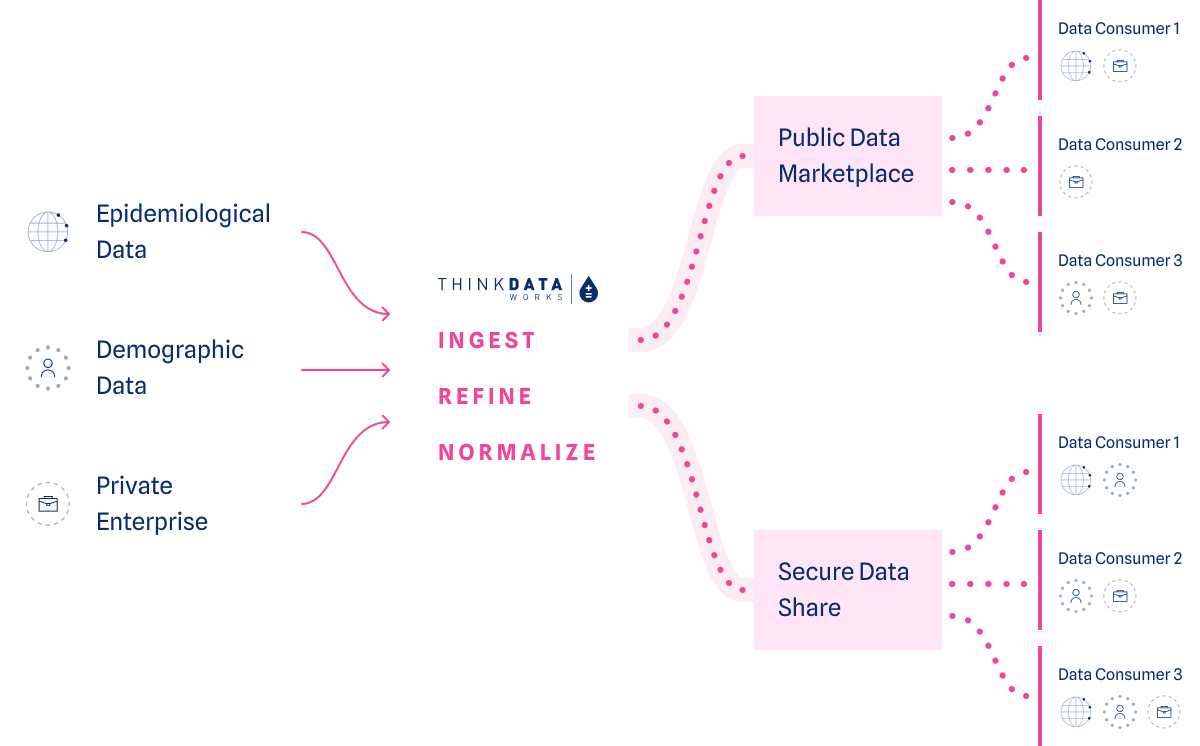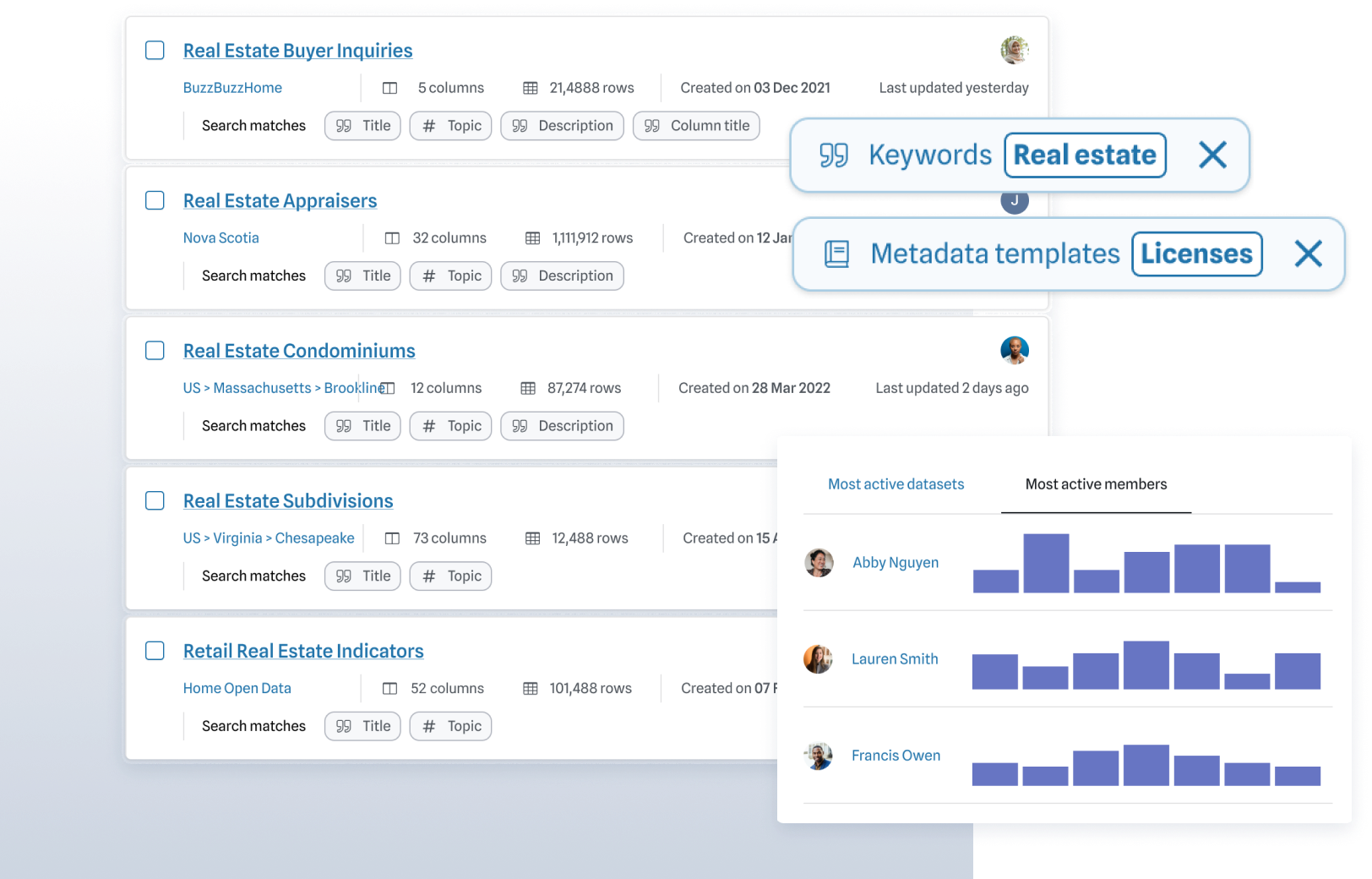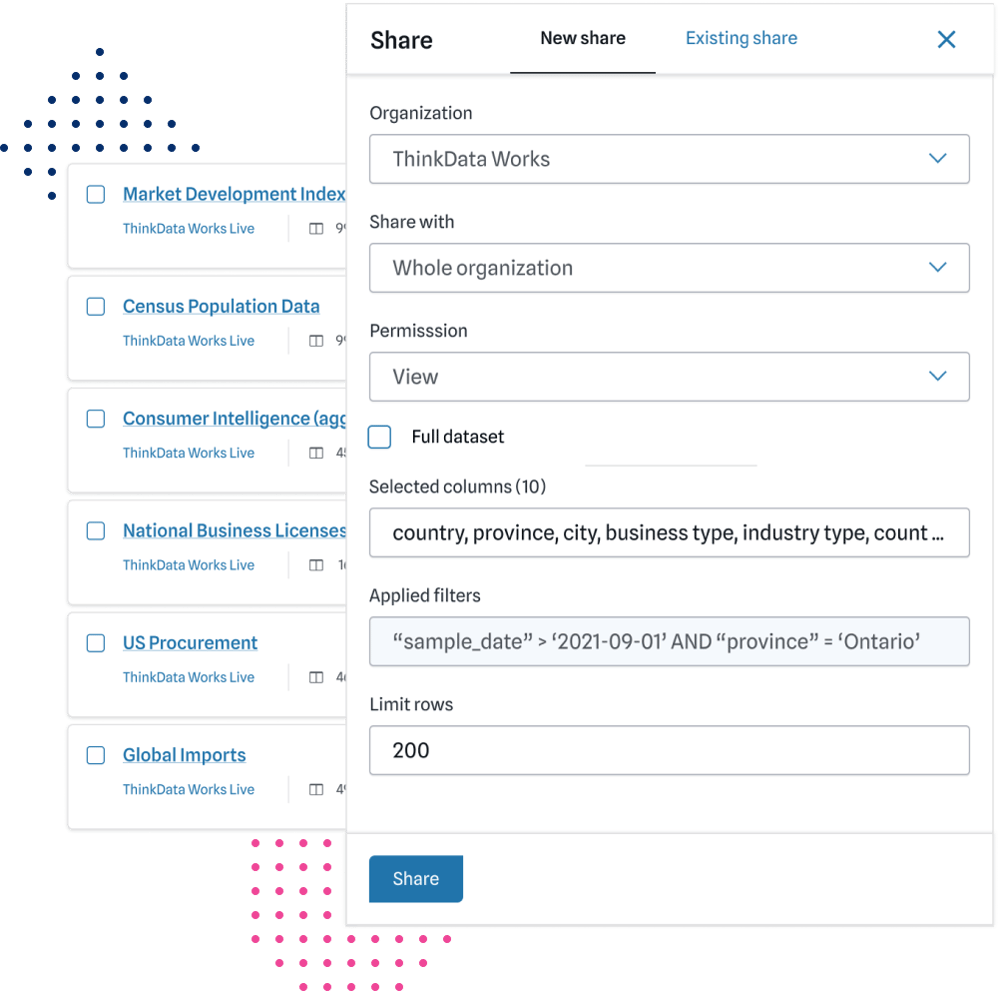One-stop solution
Support powerful data science and citizen accessibility using a neutral, centralized data commons to manage data access.
Equitable access to data is more important than ever. A neutral data trust and central data commons let open data flow between citizens, governments, and third parties.


Support powerful data science and citizen accessibility using a neutral, centralized data commons to manage data access.
Facilitate the free flow of open data, protect privacy in sensitive data, and maintain control where it’s needed.
Enhance transparency, auditability, and compliance with processes managed by an independent third party for improved data stewardship.
14%
25%
Take advantage of a data stewardship vehicle that provides single-pane access and sophisticated connectors to any data.
We manage access to sensitive public data with row- and column-level permissions that ensure security, compliance, and control.
The ThinkData Works platform ingest pipeline is trained on more than 250,000 public datasets to recognize, standardize, and reformat data automatically.
Real-time analysis of data flowing through the system tracks and reports on changes in quality and quantity, ensuring consistent data observability.
Not sure where to start? Our team can help you architect your data strategy to balance transparent discovery, secure access, and thorough reporting.
Find the data you need with catalog search and dataset filtering.
Users plug into data through the data commons, API, or query service.
Easy integration with analytics solutions lets you visualize and share intelligence.


Legal Innovation Data Institute lowers legal data access barriers in Canada by granting secure data access through a single portal, backed by ThinkData Works’ strengths in processing, standardizing, and delivering data.
If you want to securely deliver data where it’s needed, our end-to-end platform is designed to help. Get in touch to see for yourself.
